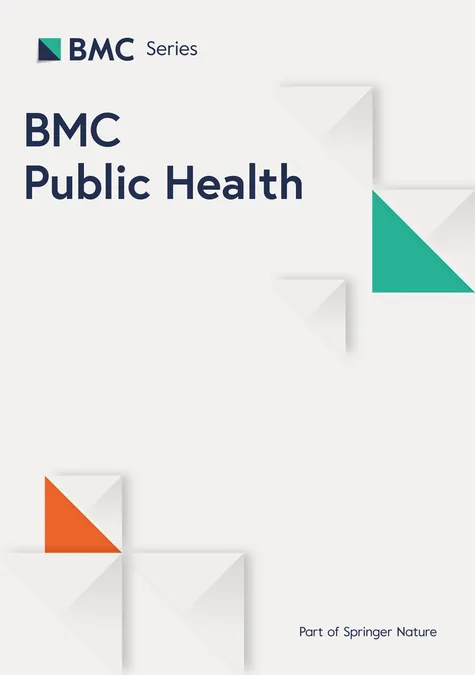
Breaking the Stigma: How HIV Vaccine Trials Transform Perceptions Among Women Sex Workers in Tanzania
2025-08-25
Author: Mei
The HIV Crisis: A Closer Look at Female Sex Workers
As of 2023, a staggering 39.9 million people are living with HIV worldwide, with women and girls making up over half of this population. Female sex workers (FSWs) are among the most vulnerable, contributing to nearly 44% of new infections. Reports from regions like Kenya and Rwanda highlight alarmingly high HIV prevalence rates among FSWs, primarily due to sexual practices with inadequate prevention measures.
Tanzania’s Role in HIV Vaccine Trials
Tanzania is playing a pivotal role in AIDS research, conducting multiple vaccine trials over the years. The latest, known as the Pre-Exposure Prophylaxis Vaccine (PrEPVacc) Trial, aims to equip women aged 18-40 with both a vaccine and access to preventive medication. Enrolled FSWs, who were HIV-negative before the trial, would receive regular vaccinations and PrEP in hopes of reducing their risks.
Understanding Perceptions Before and After the Trial
A recent qualitative study explored how these women perceive their risk of HIV before and after enrolling in the trial. Researchers focused on their sexual practices, their understanding of preventive measures, and how their experiences with the trial influenced their risk perceptions.
Initial Risks and Misconceptions
Before joining the study, many FSWs engaged in unprotected sex, often due to financial motivations or a false sense of security with regular clients. Numerous participants expressed that despite knowing the risk, the allure of higher payments led them to forgo safety measures. One participant candidly stated, "I used to go without condoms, focusing only on the money at stake." Moreover, misconceptions about condom efficacy and HIV transmission routes were rampant, contributing to their vulnerable status.
Transformative Learning Through the Trial
Participation in the PrEPVacc Trial resulted in a significant shift in perceptions. Many women reported a newfound understanding of HIV transmission and preventive methods. One participant claimed, "Now I don’t think I am at risk because I use preventive pills (PrEP)." The trial not only provided knowledge but also instilled a sense of empowerment, with women actively advocating for condom use during sexual encounters.
The Dual Challenge of Knowledge and Risk
While many participants felt more protected after gaining knowledge, some reverted to risky behaviors, believing that the combination of pills and vaccine would safeguard them. A participant reminisced, "I still use the pills; I trust myself that I’m not at great risk." Yet, the stark reality remains—economic pressures and client preferences often lead to compromises in safety.
Cultural Stigmas and Systemic Barriers
The study also highlighted broader systemic issues, including discrimination from healthcare providers and stigmatization in society. The interplay between economic necessity and the desire for health security creates a challenging environment for these women, underscoring the urgent need for comprehensive education and supportive structures.
Towards a Safer Future: Recommendations for Change
To build on the success of such trials, there must be greater accessibility to education about HIV prevention and sustainable measures that support FSWs economically without risking their health. Enhanced training for healthcare providers and targeted outreach efforts can help normalize HIV testing and treatment, ultimately reducing stigma and fostering a sense of safety.
Conclusion: A Hopeful Shift in Perception
The journey of these Tanzanian FSWs through the PrEPVacc Trial illuminates the transformative power of knowledge and empowerment. By addressing gaps in education and humanizing their experiences, society can work collaboratively towards effective HIV prevention and support for the world’s most at-risk populations.



 Brasil (PT)
Brasil (PT)
 Canada (EN)
Canada (EN)
 Chile (ES)
Chile (ES)
 Česko (CS)
Česko (CS)
 대한민국 (KO)
대한민국 (KO)
 España (ES)
España (ES)
 France (FR)
France (FR)
 Hong Kong (EN)
Hong Kong (EN)
 Italia (IT)
Italia (IT)
 日本 (JA)
日本 (JA)
 Magyarország (HU)
Magyarország (HU)
 Norge (NO)
Norge (NO)
 Polska (PL)
Polska (PL)
 Schweiz (DE)
Schweiz (DE)
 Singapore (EN)
Singapore (EN)
 Sverige (SV)
Sverige (SV)
 Suomi (FI)
Suomi (FI)
 Türkiye (TR)
Türkiye (TR)
 الإمارات العربية المتحدة (AR)
الإمارات العربية المتحدة (AR)